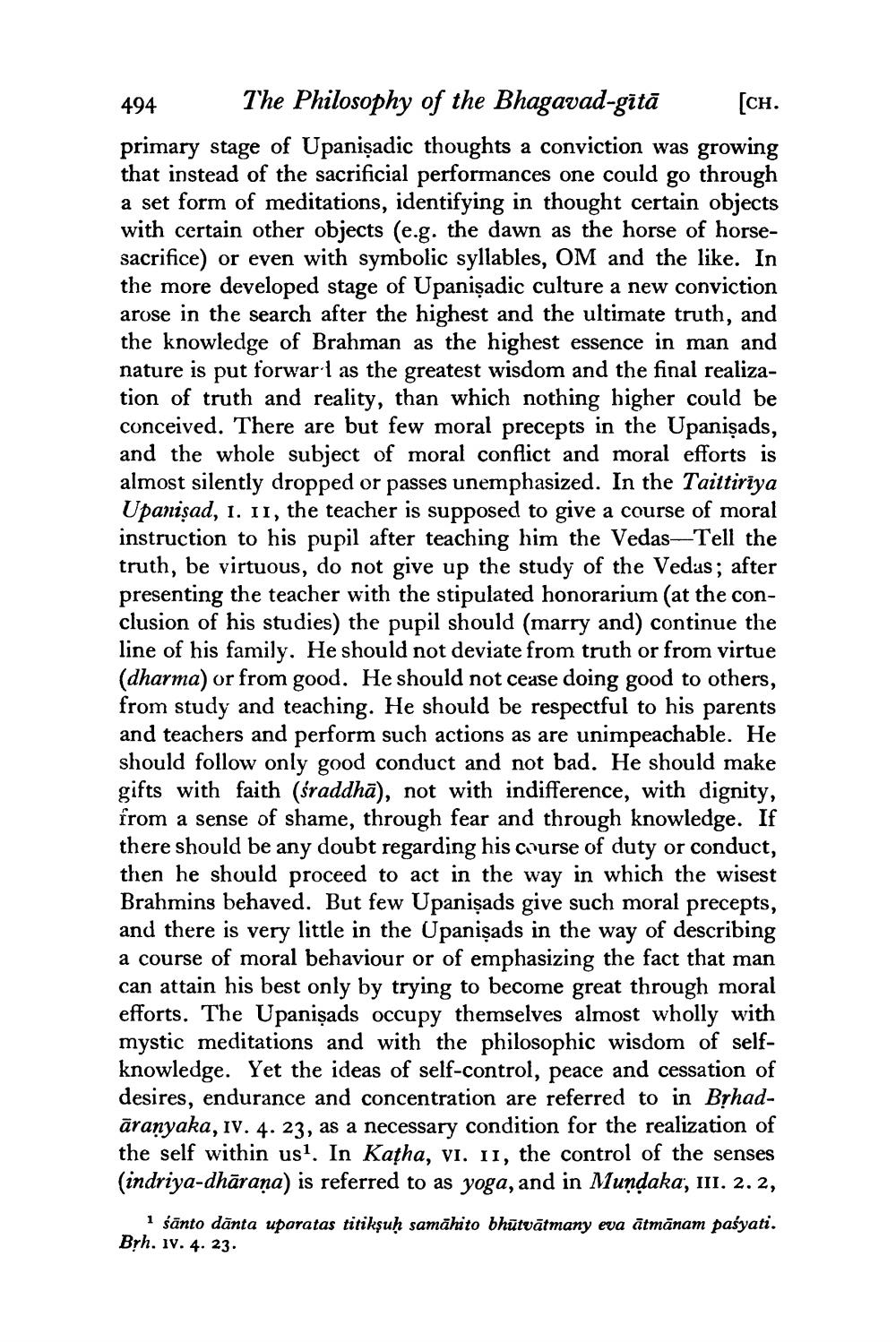________________
494
The Philosophy of the Bhagavad-gitā
[CH.
primary stage of Upanisadic thoughts a conviction was growing that instead of the sacrificial performances one could go through a set form of meditations, identifying in thought certain objects with certain other objects (e.g. the dawn as the horse of horsesacrifice) or even with symbolic syllables, OM and the like. In the more developed stage of Upanisadic culture a new conviction arose in the search after the highest and the ultimate truth, and the knowledge of Brahman as the highest essence in man and nature is put forward as the greatest wisdom and the final realization of truth and reality, than which nothing higher could be conceived. There are but few moral precepts in the Upanisads, and the whole subject of moral conflict and moral efforts is almost silently dropped or passes unemphasized. In the Taittiriya Upanisad, 1. 11, the teacher is supposed to give a course of moral instruction to his pupil after teaching him the Vedas-Tell the truth, be virtuous, do not give up the study of the Vedas; after presenting the teacher with the stipulated honorarium (at the conclusion of his studies) the pupil should (marry and) continue the line of his family. He should not deviate from truth or from virtue (dharma) or from good. He should not cease doing good to others, from study and teaching. He should be respectful to his parents and teachers and perform such actions as are unimpeachable. He should follow only good conduct and not bad. He should make gifts with faith (śraddha), not with indifference, with dignity, from a sense of shame, through fear and through knowledge. If there should be any doubt regarding his course of duty or conduct, then he should proceed to act in the way in which the wisest Brahmins behaved. But few Upanisads give such moral precepts, and there is very little in the Upanisads in the way of describing a course of moral behaviour or of emphasizing the fact that man can attain his best only by trying to become great through moral efforts. The Upanisads occupy themselves almost wholly with mystic meditations and with the philosophic wisdom of selfknowledge. Yet the ideas of self-control, peace and cessation of desires, endurance and concentration are referred to in Brhadāraṇyaka, IV. 4. 23, as a necessary condition for the realization of the self within us1. In Katha, vI. II, the control of the senses (indriya-dhārana) is referred to as yoga, and in Mundaka, III. 2. 2,
1 śānto dānta uparatas titikşuḥ samāhito bhūtvātmany eva ātmānam paśyati. Brh. IV. 4. 23.




